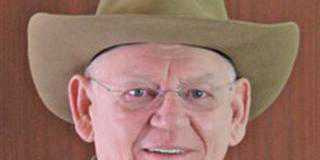After nine months on the job, Jannie de Villiers has settled comfortably into the seat of CEO at Grain SA. He gives Robyn Joubert a progress report.
What were your primary functions at Grain SA over the past nine months?
My first assignment was to draw up a strategic plan for the organisation for the next three years at least. That has been completed and the strategy was approved in May by the executive committee.
The second assignment was to get a feel for the company itself: its management and staff, its structure and offices. Good progress has been made with regard to the transformation of our staff, which included creating three new BEE positions.
Grain SA has also bought new premises in Pretoria and will be moving part of the office in December. Thirdly, I spent a lot of time repositioning Grain SA in the value chain and with government.
Did any unexpected responsibilities crop up?
Yes, the Green Paper on Land Reform. Grain SA started playing a leadership role in trying to get unity in agriculture. It didn’t plan to do it, but this evolved as things went along. I am very happy about the progress we are making in bringing people together to find solutions to improve the sector.
How would you describe your progress?
I think in some instances Grain SA has made very good progress. I want to highlight three areas in particular.
The first is our import replacement strategy. The grain industry has a lot to offer in terms of food security and job creation. These two elements of our sector makes its easier to about government’s need to create a more import replacement-friendly policy environment.
Secondly, we have made progress in getting government to reconsider using grain for biofuel. In September 2011, the government published its intention to make it mandatory to blend bio-ethanol at 2% and bio-diesel at 5% into our fuels in the near future. This has very good prospects for the grain industry.
Thirdly, I want to highlight the export of maize surplus. We hope to export up to 2,4 million tons of maize this season. The top three customers are Mexico, South Korea and Taiwan. We have also exported one shipment of white maize to Venezuela.
However, on the information side of exports, we need the co-operation of government and all role players. For example, we need to know how much local stock has been sold to exporters, but are still in South African silos.
Currently we have to import maize because we are exporting more than the surplus. Prices are going from export parity to import parity adding to the volatility and risk for all.
What attention has the soya bean industry received?
The promotion of the soya bean industry has been going well.
The National Agricultural Marketing Council (NAMC) completed a study to stablish the status of soya beans, especially in the processing sector.
The Department of Trade and Industry (DTI) is now evaluating the proposals to expand the soya bean industry. Investors are putting up new crushing plants (such as the one at Vrystaat Koöperasie Beperk in Villiers, Free State), which will improve our value adding abilities and create jobs.
The oilcake (by-product) from this process could also replace the 1 million tons of soya oilcake imported by the animal feed industry and forms part of the import replacement strategy. This is a very exciting development.
What progress has been made with black farmer development?
We have 3 613 black farmers as paid-up members of our Grain SA study groups and 3 400 commercial paid-up members.
We also have R30 million from government to assist black farmers under the Recapitalisation Programme. Grain SA has become almost like a service provider to government, to ensure the recap programme is successfully delivered.
We are very proud of the progress.
You recently spent time on a film set. What was that about?
Grain SA is filming a new TV advert to promote the image of our grain producers and highlight the responsible role we play in food security.
It entailed a lot of planning and hopefully by February next year it will be aired on TV.
What challenges will 2012 hold?
The industry needs to improve data collection, so a clear picture of maize exports and stock in silos can guide exports and ensure the country is left with sufficient stock to meet its needs.
We also need to work a lot harder on infrastructure, getting railways working properly and expanding ports. These things take a lot of hard work. You have to keep at it all the time. It is tough.
Grain SA’s new phone number will be 012 807 6023.













